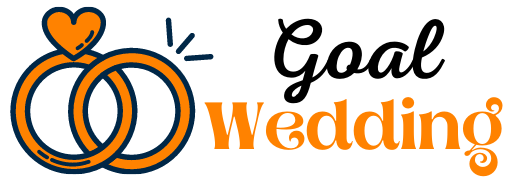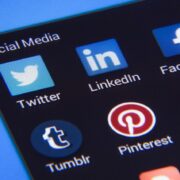The Danielle Bregoli OnlyFans Leak: Exploring the Controversy and its Implications
-
Table of Contents
- The Danielle Bregoli OnlyFans Leak: Exploring the Controversy and its Implications
- The Danielle Bregoli OnlyFans Leak: What Happened?
- The Legal and Ethical Implications
- 1. Privacy and Consent:
- 2. Exploitation of Minors:
- 3. Cybersecurity and Data Protection:
- The Broader Issues: Online Privacy and Celebrity Culture
- 1. Invasion of Privacy:
- 2. Objectification and Exploitation:
- 3. Need for Digital Literacy:
- Conclusion
- Q&A
- 1. What is OnlyFans?
- 2. How old was Danielle Bregoli at the time of the leak?
- 3. Is the distribution of explicit content involving minors illegal?
- 4. What can platforms like OnlyFans do to prevent content leaks?
- 5. How can individuals protect their privacy online?
Introduction:
In recent years, the rise of social media platforms has given birth to a new breed of celebrities. One such example is Danielle Bregoli, also known as Bhad Bhabie, who gained fame through her appearance on the Dr. Phil show in 2016. Since then, Bregoli has amassed a massive following on various social media platforms, including OnlyFans, a subscription-based content sharing platform. However, the recent leak of Danielle Bregoli’s OnlyFans content has sparked controversy and raised important questions about privacy, consent, and the ethics of online content consumption. In this article, we will delve into the details of the Danielle Bregoli OnlyFans leak, explore its implications, and discuss the broader issues it highlights.
The Danielle Bregoli OnlyFans Leak: What Happened?
On [date], it was reported that Danielle Bregoli’s OnlyFans account had been hacked, resulting in the unauthorized release of her private content. OnlyFans is a platform that allows creators to share exclusive content with their subscribers for a monthly fee. While the leak of private content is not uncommon in the digital age, the case of Danielle Bregoli raises unique concerns due to her age at the time of the leak.
At the time of the leak, Danielle Bregoli was only [age]. This raises serious legal and ethical questions regarding the distribution and consumption of explicit content involving minors. The leak not only violated Bregoli’s privacy but also exposed her to potential exploitation and harm.
The Legal and Ethical Implications
The Danielle Bregoli OnlyFans leak brings to light several legal and ethical issues surrounding online privacy and consent. Let’s explore some of these implications:
1. Privacy and Consent:
The leak of Danielle Bregoli’s OnlyFans content highlights the importance of privacy and consent in the digital age. While creators willingly share content on platforms like OnlyFans, it is crucial to respect their boundaries and ensure that their consent is obtained for any further distribution or sharing of their content. The leak of Bregoli’s content without her consent is a clear violation of her privacy rights.
2. Exploitation of Minors:
One of the most concerning aspects of the Danielle Bregoli OnlyFans leak is the potential exploitation of a minor. Bregoli was underage at the time of the leak, and the distribution of explicit content involving minors is illegal and morally reprehensible. This incident highlights the need for stricter regulations and safeguards to protect minors from such exploitation.
3. Cybersecurity and Data Protection:
The hack of Danielle Bregoli’s OnlyFans account raises questions about the security measures in place to protect user data on such platforms. It is essential for platforms like OnlyFans to invest in robust cybersecurity measures to prevent unauthorized access and leaks of sensitive content. Users should also be educated about the importance of strong passwords and other security practices to protect their accounts.
The Broader Issues: Online Privacy and Celebrity Culture
The Danielle Bregoli OnlyFans leak is not an isolated incident but rather a symptom of broader issues surrounding online privacy and celebrity culture. Let’s explore some of these issues:
1. Invasion of Privacy:
The leak of private content, whether it is explicit or not, is a violation of an individual’s privacy. In the case of celebrities like Danielle Bregoli, who have a significant online presence, the invasion of privacy becomes even more pronounced. The leak of their personal and intimate content can have severe consequences for their mental health and overall well-being.
2. Objectification and Exploitation:
Celebrity culture often perpetuates the objectification and exploitation of individuals, particularly women. The leak of explicit content from platforms like OnlyFans further exacerbates this issue, as it commodifies and devalues the personal lives of celebrities. It is crucial to challenge and dismantle the culture that perpetuates such objectification and exploitation.
3. Need for Digital Literacy:
The Danielle Bregoli OnlyFans leak highlights the need for digital literacy and education. Users need to be aware of the potential risks and consequences of sharing sensitive content online. Additionally, platforms like OnlyFans should provide clear guidelines and resources to help users protect their privacy and navigate the digital landscape safely.
Conclusion
The Danielle Bregoli OnlyFans leak serves as a stark reminder of the importance of privacy, consent, and ethical online behavior. It raises critical questions about the legal and ethical implications of content leaks, particularly when it involves minors. The incident also highlights broader issues surrounding online privacy, celebrity culture, and the need for digital literacy. As we navigate the digital age, it is crucial to prioritize the protection of individuals’ privacy and ensure that platforms and users alike uphold ethical standards in their online interactions.
Q&A
1. What is OnlyFans?
OnlyFans is a subscription-based content sharing platform that allows creators to share exclusive content with their subscribers for a monthly fee. It gained popularity for its adult content, but it is also used by creators from various industries to monetize their content.
2. How old was Danielle Bregoli at the time of the leak?
Danielle Bregoli was [age] at the time of the OnlyFans leak.
3. Is the distribution of explicit content involving minors illegal?
Yes, the distribution of explicit content involving minors is illegal in most jurisdictions. It is considered child pornography and is subject to severe legal consequences.
4. What can platforms like OnlyFans do to prevent content leaks?
Platforms like OnlyFans can invest in robust cybersecurity measures to prevent unauthorized access to user accounts. They can also implement stricter verification processes to ensure that users are of legal age and comply with content guidelines. Additionally, educating users about online security practices can help prevent content leaks.
5. How can individuals protect their privacy online?
Individuals can protect their privacy online by using strong and unique passwords, enabling two-factor authentication, being cautious about sharing sensitive information, and regularly updating their privacy settings on social media platforms. It is also important to be mindful of the content shared online and to consider the potential risks and consequences.





